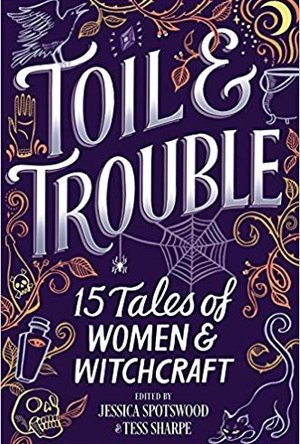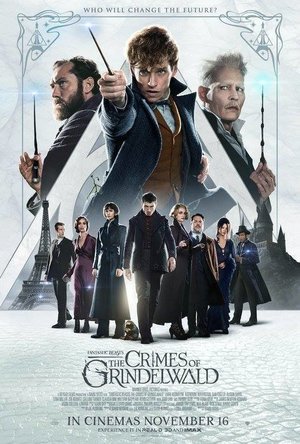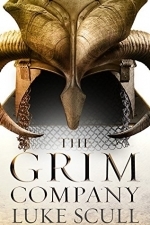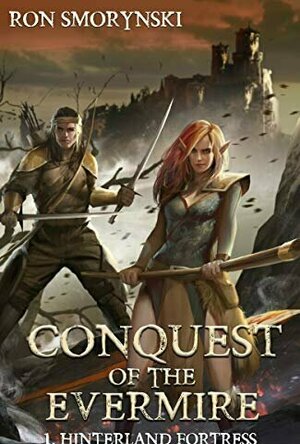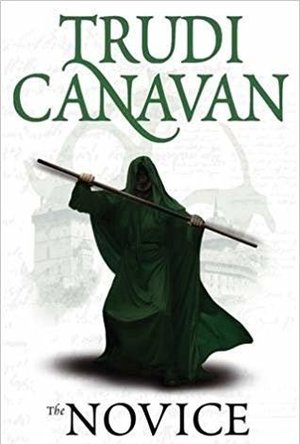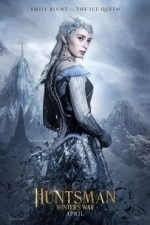Search
Search results
Hazel (1853 KP) rated A Grimm Legacy (Grimm Tales #1) in Books
Dec 17, 2018
<i>This eBook was provided by the publisher via NetGalley in exchange for an honest review</i>
Fairy tale enthusiasts will love this young adult novel by Colorado based author Janna Jennings. Full with lots of magical references <i>A Grimm Legacy</i> is about four teenagers who get dragged out of their world and into the enchanted realm of Elorium. The mysterious Mr. Jackson, who they find in a mansion with a couple of elf servants, tells them that they have been brought there for a reason; but before anyone gets the chance to explain what that reason is, the four run away only to encounter many dangerous characters.
As the title suggests <i>A Grimm Legacy</i> is loosely based upon the stories collected by Jacob and Wilhelm Grimm. To get the most out of this book the reader needs to have an understanding of a variety of fairy-tales, for instance <i>Cinderella</i>. As well as the more commonly known, there are less recognized stories, which are of great significance to the novel: for example <i>Jorindel and Jorinda</i> and <i>The Fisherman and his Wife</i>.
Whilst Jennings has done well in her research into the different fairytales, she includes <i>Jack and the Beanstalk</i> as one of the references, which is in fact not a Brothers’ Grimm tale. <i>Jack and the Beanstalk</i> is an English tale that was first recorded by Benjamin Tabart in 1807. Either Jennings failed to realize this or she was including all fairytales within this book, in which case the title is misleading.
The book on the whole was quick to read and was full of exciting twists. I enjoyed discovering the various references to the well-known stories. One thing that made the text confusing, however, was the lack of breaks between certain paragraphs. Within a chapter there were occasionally more than one scene or setting and without a gap to distinguish between them it was often difficult to understand the changes in time period etc.
This book was written with young adults in mind but can be enjoyed by older readers too. It is not suitable for younger children however, not only due to the sinister nature of the original fairytales, but <i>A Grimm Legacy</i> has the occasional violent scene in it.
Despite the inaccuracy regarding <i>Jack and the Beanstalk</i>, this is a fun book to read. My only advice is to read it after you have explored some of the Brothers’ Grimm collection.
Fairy tale enthusiasts will love this young adult novel by Colorado based author Janna Jennings. Full with lots of magical references <i>A Grimm Legacy</i> is about four teenagers who get dragged out of their world and into the enchanted realm of Elorium. The mysterious Mr. Jackson, who they find in a mansion with a couple of elf servants, tells them that they have been brought there for a reason; but before anyone gets the chance to explain what that reason is, the four run away only to encounter many dangerous characters.
As the title suggests <i>A Grimm Legacy</i> is loosely based upon the stories collected by Jacob and Wilhelm Grimm. To get the most out of this book the reader needs to have an understanding of a variety of fairy-tales, for instance <i>Cinderella</i>. As well as the more commonly known, there are less recognized stories, which are of great significance to the novel: for example <i>Jorindel and Jorinda</i> and <i>The Fisherman and his Wife</i>.
Whilst Jennings has done well in her research into the different fairytales, she includes <i>Jack and the Beanstalk</i> as one of the references, which is in fact not a Brothers’ Grimm tale. <i>Jack and the Beanstalk</i> is an English tale that was first recorded by Benjamin Tabart in 1807. Either Jennings failed to realize this or she was including all fairytales within this book, in which case the title is misleading.
The book on the whole was quick to read and was full of exciting twists. I enjoyed discovering the various references to the well-known stories. One thing that made the text confusing, however, was the lack of breaks between certain paragraphs. Within a chapter there were occasionally more than one scene or setting and without a gap to distinguish between them it was often difficult to understand the changes in time period etc.
This book was written with young adults in mind but can be enjoyed by older readers too. It is not suitable for younger children however, not only due to the sinister nature of the original fairytales, but <i>A Grimm Legacy</i> has the occasional violent scene in it.
Despite the inaccuracy regarding <i>Jack and the Beanstalk</i>, this is a fun book to read. My only advice is to read it after you have explored some of the Brothers’ Grimm collection.
Goddess in the Stacks (553 KP) rated Toil & Trouble: 15 Tales of Women & Witchcraft in Books
Dec 22, 2018
Toil & Trouble was a much-hyped anthology of YA stories, and I think it lived up to that hype. I really enjoyed almost every story in this book - only one or two of them were less than awesome. And they still weren't bad! Anthologies like this keep introducing me to yet more authors that I want to read, and just keep growing my TBR list! Some of the authors in this book I was familiar with; while I hadn't read her work yet, I met Zoraida Córdova at the Baltimore Book Festival, and she was amazing. I'm familiar with Brandy Colbert's work, and have not yet read Anna-Marie McLemore but desperately want to, and her story in this work (Love Spell) only increases that need.
I read this book just before Halloween, and it was a perfect choice. I'm not a fan of actual horror novels, which seem to be what everyone else is reading this time of year. Give me my strong witchy women! The stories in this book are all young women - teens to early adulthood - learning to rely on themselves. They embrace what family traditions mean to them, or break free of them entirely if they're the wrong path. They break social taboos and fall in love where they will. They FIGHT for what they want.
I think my favorite story in this book involved a woman whose powers had been bound by her coven until she was old enough to use them wisely, but had to watch her father die in an accident when she could have healed him if she'd had access to her magic. She went to an ancient place of power in the mountains and broke the binding, horrifying her coven. The story is actually about her defying them further in refusing her destined soul mate for the girl she's been in love with since she was a child, and Fate's punishment for that. The two girls fighting for each other and for their own magic was amazing. (The Heart in Her Hands, Tess Sharpe.) Unfortunately it doesn't look like it's part of a larger story, I was hoping for more in that world!
As far as I can tell, only one of the stories is part of something larger - I'm pretty sure Zoraida Córdova's story is part of her Brooklyn Brujas world. Other than that, they all appear to be standalones, which is a little sad as I'd like to see more of many of these worlds!
Toil & Trouble is an outstanding anthology of magical women, and I loved it.
You can find all my reviews at http://goddessinthestacks.com
I read this book just before Halloween, and it was a perfect choice. I'm not a fan of actual horror novels, which seem to be what everyone else is reading this time of year. Give me my strong witchy women! The stories in this book are all young women - teens to early adulthood - learning to rely on themselves. They embrace what family traditions mean to them, or break free of them entirely if they're the wrong path. They break social taboos and fall in love where they will. They FIGHT for what they want.
I think my favorite story in this book involved a woman whose powers had been bound by her coven until she was old enough to use them wisely, but had to watch her father die in an accident when she could have healed him if she'd had access to her magic. She went to an ancient place of power in the mountains and broke the binding, horrifying her coven. The story is actually about her defying them further in refusing her destined soul mate for the girl she's been in love with since she was a child, and Fate's punishment for that. The two girls fighting for each other and for their own magic was amazing. (The Heart in Her Hands, Tess Sharpe.) Unfortunately it doesn't look like it's part of a larger story, I was hoping for more in that world!
As far as I can tell, only one of the stories is part of something larger - I'm pretty sure Zoraida Córdova's story is part of her Brooklyn Brujas world. Other than that, they all appear to be standalones, which is a little sad as I'd like to see more of many of these worlds!
Toil & Trouble is an outstanding anthology of magical women, and I loved it.
You can find all my reviews at http://goddessinthestacks.com
Hara05 (11 KP) rated Fantastic Beasts: Crimes of Grindelwald (2018) in Movies
Jul 1, 2019
The Wizarding World Needs To Be Left Alone
I'm a huge Harry Potter fan. I fell in love as soon as I opened the first book back in 1997 and I've compiled a very extensive, mostly useless knowledge base on the subject.
I put up with the first Fantastic Beasts film for two reasons: I was craving some Potter magic and the 'beasts' were adorable, fascinating and comical. The first film has enough magic, enough fun and enough humour to allow me to enjoy it but Crimes of Grindelwald? Nah. Just Nah.
I can't help but feel completely rinsed by this film. It breaks away from canon, turning a world I've devoted so much time too onto its head. It tells us that everything we have learned, everything we've spent our money and time on, is basically wrong. I haven't been a fan of Rowling dishes out new pieces of information here and there as if she has always known them - just be honest with us and tell us that time has made you think of these things or see things in a different light. She's still an intelligent, creative woman - she doesn't need to keep trying to prove it.
Crimes of Grindelwald just isn't as magical, as innovative or as creative as the Harry Potter series and the viewer can't help but feel that the writers are clutching at straws in order to attempt to build another franchise. They rely too heavily on people's love for the Wizarding World and don't actually offer us much more, or anything of value with this film. It's convoluted, clichéd and at times, predictable. It uses characters so wonderfully fleshed out in the previous film and completely changes who they are in a simple two minute, completely random scene. It feels as if there is no direction to these films, as if Crimes of Grindelwald is a different entity, split from Fantastic Beasts but shoved under that arch in order to make a buck.
I was truly so disappointed with this movie. I felt let down by Rowling and the filmmakers because I've been so loyal to this franchise and I wanted this new installment to be wonderful. I wanted to feel nostalgic and engrossed when I watched this but instead, I was picking out holes in the storyline and pointing out errors. This is not what we expect from what is essentially, a Harry Potter film.
We have three more of these films to get through. I just hope they up their game and are more tolerable than Crimes of Grindelwald.
I put up with the first Fantastic Beasts film for two reasons: I was craving some Potter magic and the 'beasts' were adorable, fascinating and comical. The first film has enough magic, enough fun and enough humour to allow me to enjoy it but Crimes of Grindelwald? Nah. Just Nah.
I can't help but feel completely rinsed by this film. It breaks away from canon, turning a world I've devoted so much time too onto its head. It tells us that everything we have learned, everything we've spent our money and time on, is basically wrong. I haven't been a fan of Rowling dishes out new pieces of information here and there as if she has always known them - just be honest with us and tell us that time has made you think of these things or see things in a different light. She's still an intelligent, creative woman - she doesn't need to keep trying to prove it.
Crimes of Grindelwald just isn't as magical, as innovative or as creative as the Harry Potter series and the viewer can't help but feel that the writers are clutching at straws in order to attempt to build another franchise. They rely too heavily on people's love for the Wizarding World and don't actually offer us much more, or anything of value with this film. It's convoluted, clichéd and at times, predictable. It uses characters so wonderfully fleshed out in the previous film and completely changes who they are in a simple two minute, completely random scene. It feels as if there is no direction to these films, as if Crimes of Grindelwald is a different entity, split from Fantastic Beasts but shoved under that arch in order to make a buck.
I was truly so disappointed with this movie. I felt let down by Rowling and the filmmakers because I've been so loyal to this franchise and I wanted this new installment to be wonderful. I wanted to feel nostalgic and engrossed when I watched this but instead, I was picking out holes in the storyline and pointing out errors. This is not what we expect from what is essentially, a Harry Potter film.
We have three more of these films to get through. I just hope they up their game and are more tolerable than Crimes of Grindelwald.
Phil Leader (619 KP) rated The Grim Company in Books
Nov 14, 2019
The Grim Company aims to deliver a swords and sorcery tail in the epic mould while being gritty, grimy and dirty in detail. And to a very large extent it suceeds, managing to tell a tale of war between city states from the point of view of some of the characters cauught up in it.
One thing that is always hard to do when starting out on a new story is to get used to the characters. The author must balance the need to ensure that enough time is spent to flesh out each character as they are introduced without overwhelming the reader and Scull is adept at this, the first few chapters detailing some of the misadventures, goals and dreams of the main characters.
And what characters they are. Cole is a young hero with a magical blade, who's destiny is to free the city of Dorminia from the tyrant Salazar, while at the same time being a real catch for any pretty girls. Or so he sees himself. To everyone else he is vain, boastful and arrogant. Jerek is a barbarian who has the market cornered in foul language, pithy insults and scowling at everything. Also good is Barandas, head of the elite guard of the city who is just trying to do his job.
The obvious author to compare Scull to is Joe Abercrombie, and the comparison is a fair one although (in this book) Scull doesn't quite manage to create the depth and range in Abercrombie's characters and situations. So although they aren't really classic fantasy archetypes, they are still close and don't subvert them. What Scull does bring is a little less cynicism than Abercrombie. Here it is worth fighting for what you believe is right, and honour still has value. This gives it a rather refreshing feeling.
The book also has strength in being the first of a series so it doesn't have to be a stand alone story and can leave enough threads for the next book to pick up. This allows the end, after a frenetic climactic battle, to relax into telling the aftermath rather than spending too much time trying to tie up all the loose ends.
Overall a good book for the fantasy lover. Not as grim or dark as 'grimdark' but still with enough spit and sawdust to add an underbelly to the reliable fantasy concepts it should appeal to a wide audience.
Rated: Strong language, bloody violence and some sexual references throughout
One thing that is always hard to do when starting out on a new story is to get used to the characters. The author must balance the need to ensure that enough time is spent to flesh out each character as they are introduced without overwhelming the reader and Scull is adept at this, the first few chapters detailing some of the misadventures, goals and dreams of the main characters.
And what characters they are. Cole is a young hero with a magical blade, who's destiny is to free the city of Dorminia from the tyrant Salazar, while at the same time being a real catch for any pretty girls. Or so he sees himself. To everyone else he is vain, boastful and arrogant. Jerek is a barbarian who has the market cornered in foul language, pithy insults and scowling at everything. Also good is Barandas, head of the elite guard of the city who is just trying to do his job.
The obvious author to compare Scull to is Joe Abercrombie, and the comparison is a fair one although (in this book) Scull doesn't quite manage to create the depth and range in Abercrombie's characters and situations. So although they aren't really classic fantasy archetypes, they are still close and don't subvert them. What Scull does bring is a little less cynicism than Abercrombie. Here it is worth fighting for what you believe is right, and honour still has value. This gives it a rather refreshing feeling.
The book also has strength in being the first of a series so it doesn't have to be a stand alone story and can leave enough threads for the next book to pick up. This allows the end, after a frenetic climactic battle, to relax into telling the aftermath rather than spending too much time trying to tie up all the loose ends.
Overall a good book for the fantasy lover. Not as grim or dark as 'grimdark' but still with enough spit and sawdust to add an underbelly to the reliable fantasy concepts it should appeal to a wide audience.
Rated: Strong language, bloody violence and some sexual references throughout
EmersonRose (320 KP) rated Hinterland Fortress (Conquest of The Evermore #1) in Books
Nov 20, 2019
“Rhyal was sitting in a wagon. She wriggled her nose. The stench awoke her from her meditation. She opened her eyes to see Ender snoring away. She sensed and knew where she was now. She peered out of the canvas covering to see the dark mountains of Grund Morr. It would be the last known feature she’d see as they passed through the Evermire swampland.”
Conquest of the Evermire: 1. Hinterland Fortress is the first book in the Conquest of the Evermire series by author Ron Smorynski, author of the series Alfred and Knight of the Dead. (See the end of this review for links to reviews of all of those books as well). The novella follows adoptive siblings Rhyal, an elf, and Ender, a human. The two are on a journey to see the world outside of the elven havens. They have heard the stories and myths connected to Evermire, of treasure and glory, and decided to see it for themselves.
The book combines together a lot of my favorite fantasy things. An exciting adventure, interesting renditions of classic magical beings, strong bonds of friendship or family, a well-built world, and a lot of fun and quirky side characters. I found myself very drawn to the connection between Rhyal and Ender, their close bond already formed at the beginning of the book is engaging. I also really appreciated that, while they are trained and talented fighters, they acknowledge the difference physically and mentally in fighting in real life vs. practice. This added some realism and made the fighting more interesting to follow. My favorite side character in the book was Ligo. He is a fun, quirky, snarky gone with very big dreams. He added the lightness that this book needed to balance the dark setting and fights to the death.
What this novella really does is serve as an exciting set-up to the adventure. The book allows us to get to know some of the characters, learn a bit about the Evermire, but perhaps most importantly plant the seeds of several intriguing questions. I know just want to learn more about Rhyal and Ender’s pasts, more about the magic system, what is really hidden in the depth of the Evermire… This was an exciting start to a fun adventure that I look forward to continuing in the sequel: Conquest of the Evermire: 2. The Church.
The book is great for young adults as it is not unnecessarily dark or gory. I thought that this book was really fun and I am excited to see where it goes next!
Conquest of the Evermire: 1. Hinterland Fortress is the first book in the Conquest of the Evermire series by author Ron Smorynski, author of the series Alfred and Knight of the Dead. (See the end of this review for links to reviews of all of those books as well). The novella follows adoptive siblings Rhyal, an elf, and Ender, a human. The two are on a journey to see the world outside of the elven havens. They have heard the stories and myths connected to Evermire, of treasure and glory, and decided to see it for themselves.
The book combines together a lot of my favorite fantasy things. An exciting adventure, interesting renditions of classic magical beings, strong bonds of friendship or family, a well-built world, and a lot of fun and quirky side characters. I found myself very drawn to the connection between Rhyal and Ender, their close bond already formed at the beginning of the book is engaging. I also really appreciated that, while they are trained and talented fighters, they acknowledge the difference physically and mentally in fighting in real life vs. practice. This added some realism and made the fighting more interesting to follow. My favorite side character in the book was Ligo. He is a fun, quirky, snarky gone with very big dreams. He added the lightness that this book needed to balance the dark setting and fights to the death.
What this novella really does is serve as an exciting set-up to the adventure. The book allows us to get to know some of the characters, learn a bit about the Evermire, but perhaps most importantly plant the seeds of several intriguing questions. I know just want to learn more about Rhyal and Ender’s pasts, more about the magic system, what is really hidden in the depth of the Evermire… This was an exciting start to a fun adventure that I look forward to continuing in the sequel: Conquest of the Evermire: 2. The Church.
The book is great for young adults as it is not unnecessarily dark or gory. I thought that this book was really fun and I am excited to see where it goes next!
Phil Leader (619 KP) rated The Novice (Black Magician Trilogy, #2) in Books
Nov 21, 2019
The Novice is the second book in The Black Magician trilogy and continues the story of Sonea, the slum girl who discovers she has magical powers.
A few months after the first book, Sonea is offically inducted as a novice into the Magician's Guild in Imardin. She is immediately looked down on by her fellow novices and indeed other magicians because of her poor upbringing (magicians always being taken from the families of the rich upper class). One novice in particular will go to any lengths to humiliate her. Meanwhile Sonea is hiding a secret. The High Lord of the Guild is practicing black magic, strictly forbidden. Dannyl is sent on a secret mission by Lorlen to try to discover how the High Lord won these powers and if there is anything that can be done to stop him.
I found this book to be far more satisfying than the first book, The Magician's Guild. I think this is due to two factors. Firstly Canavan's writing is far more confident and assured (not surprising for a second novel). Also the story arc is a lot less predictable and allows for more twists and turns since the end is not inevitable (in the first novel it is clear that Sonea will eventually be joining the guild; it is only the sub-plots that provide suprises).
As a consequence this is an easier read than the first book with plenty of good stories, either Sonea's (mis)adventures in the Guild or Dannyl's voyage of discovery on his travels. The end resolves one of the major plot points, leaving the rest for the third book, The High Lord to investigate.
Canavan touches on various topics during the book, particularly bullying by peers and also some nice observations on repression of homosexuality in the intolerant Imardin society.
It is also welcoming to see more of the land; the first book was bound to the city itself but here through Dannyl we get to see the neighbouring lands and discover some of their peoples and customs, together with a fair amount of hazardous travelling.
The magic system is also key; normally magicians throw around a bewildering array of spells with limitless powers. Clearly this isn't an option in these books and each spell and power Sonea learns is neatly and logically explained and consistant. It really makes a change that the magic spells are treated mechanically rather than as, well, 'magic'.
Definitely a recommended read
A few months after the first book, Sonea is offically inducted as a novice into the Magician's Guild in Imardin. She is immediately looked down on by her fellow novices and indeed other magicians because of her poor upbringing (magicians always being taken from the families of the rich upper class). One novice in particular will go to any lengths to humiliate her. Meanwhile Sonea is hiding a secret. The High Lord of the Guild is practicing black magic, strictly forbidden. Dannyl is sent on a secret mission by Lorlen to try to discover how the High Lord won these powers and if there is anything that can be done to stop him.
I found this book to be far more satisfying than the first book, The Magician's Guild. I think this is due to two factors. Firstly Canavan's writing is far more confident and assured (not surprising for a second novel). Also the story arc is a lot less predictable and allows for more twists and turns since the end is not inevitable (in the first novel it is clear that Sonea will eventually be joining the guild; it is only the sub-plots that provide suprises).
As a consequence this is an easier read than the first book with plenty of good stories, either Sonea's (mis)adventures in the Guild or Dannyl's voyage of discovery on his travels. The end resolves one of the major plot points, leaving the rest for the third book, The High Lord to investigate.
Canavan touches on various topics during the book, particularly bullying by peers and also some nice observations on repression of homosexuality in the intolerant Imardin society.
It is also welcoming to see more of the land; the first book was bound to the city itself but here through Dannyl we get to see the neighbouring lands and discover some of their peoples and customs, together with a fair amount of hazardous travelling.
The magic system is also key; normally magicians throw around a bewildering array of spells with limitless powers. Clearly this isn't an option in these books and each spell and power Sonea learns is neatly and logically explained and consistant. It really makes a change that the magic spells are treated mechanically rather than as, well, 'magic'.
Definitely a recommended read
Gareth von Kallenbach (980 KP) rated The Huntsman: Winter's War (2016) in Movies
Aug 6, 2019
Mirror, mirror on the wall who is the fairest of them all?”
Once again the story that has captivated millions throughout the world returns to the big screen with a prequel and sequel to Snow White and the Huntsman. At the end of the first film, the evil mirror-obsessed queen Ravenna (Charlize Theron) is defeated by Snow White (Kirsten Stewart) and Eric the Huntsman (Chris Hemsworth). The second film begins with the revelation that Ravenna has a sister named Freya (Emily Blunt), who was completely normal until she made the mistake of falling in love and getting pregnant, which endangered the sinister plans of Ravenna. Under unknown circumstances Freya loses the love of her life and her baby, causing so much pain and suffering , she becomes the sad and lonely Snow Queen , leaving her sister to conquer kingdoms on her own .
The Huntsman is related to Ravenna, not only because of Snow White, but because he and his wife Sara (Jessica Chastain) were raised and trained in the kingdom ruled by Snow Queen Freya who, as a survivor of unthinkable heartbreak, has one big rule all her “children” must obey: Do not love. Ever.
Long story short, Freya’s reign threatens Snow White’s kingdom and it’s up to Eric, Sara, and their companions to stop her. And although her role is smaller here than in the original film, Queen Ravenna returns to both aid and manipulate her youngster sister Freya.
There might not be Seven Dwarves this time around, but the four this sequel does include are hilarious and offer some of the cleverest comebacks I have heard in a long time. Nick Frost’s Nion is the only dwarf from the original to return, and he’s joined by his brother Gryff (Rob Brydon) and two females, Mrs. Bromwyn (Sheridan Smith) and Doreena (Alexandra Roache).
I can say that I really liked this film, and as a Charlize Theron fan I most enjoy her work especially as an evil, selfish witch obsessed with eternal beauty. And of course having Chris Hemsworth in the screen is always a delight for our eyes. The special effects are not distracting at all; they’re actually the complete opposite. The quality is outstanding which makes it easier to be transported to a magical world filled with fairies and enchantments.
Although I have to say it is not as family-friendly as the fairy tale inspired film, it is definitely funny, including a lot of action and fight scenes with a story line that entertains the audience.
Once again the story that has captivated millions throughout the world returns to the big screen with a prequel and sequel to Snow White and the Huntsman. At the end of the first film, the evil mirror-obsessed queen Ravenna (Charlize Theron) is defeated by Snow White (Kirsten Stewart) and Eric the Huntsman (Chris Hemsworth). The second film begins with the revelation that Ravenna has a sister named Freya (Emily Blunt), who was completely normal until she made the mistake of falling in love and getting pregnant, which endangered the sinister plans of Ravenna. Under unknown circumstances Freya loses the love of her life and her baby, causing so much pain and suffering , she becomes the sad and lonely Snow Queen , leaving her sister to conquer kingdoms on her own .
The Huntsman is related to Ravenna, not only because of Snow White, but because he and his wife Sara (Jessica Chastain) were raised and trained in the kingdom ruled by Snow Queen Freya who, as a survivor of unthinkable heartbreak, has one big rule all her “children” must obey: Do not love. Ever.
Long story short, Freya’s reign threatens Snow White’s kingdom and it’s up to Eric, Sara, and their companions to stop her. And although her role is smaller here than in the original film, Queen Ravenna returns to both aid and manipulate her youngster sister Freya.
There might not be Seven Dwarves this time around, but the four this sequel does include are hilarious and offer some of the cleverest comebacks I have heard in a long time. Nick Frost’s Nion is the only dwarf from the original to return, and he’s joined by his brother Gryff (Rob Brydon) and two females, Mrs. Bromwyn (Sheridan Smith) and Doreena (Alexandra Roache).
I can say that I really liked this film, and as a Charlize Theron fan I most enjoy her work especially as an evil, selfish witch obsessed with eternal beauty. And of course having Chris Hemsworth in the screen is always a delight for our eyes. The special effects are not distracting at all; they’re actually the complete opposite. The quality is outstanding which makes it easier to be transported to a magical world filled with fairies and enchantments.
Although I have to say it is not as family-friendly as the fairy tale inspired film, it is definitely funny, including a lot of action and fight scenes with a story line that entertains the audience.
Gareth von Kallenbach (980 KP) rated Carrie (2013) in Movies
Aug 6, 2019
If you’ve got a taste for terror…take Carrie to the Prom.”
Chloe Grace Moretz plays Carrie, an extremely shy outcast who is bullied by her peers for being “strange” and “different”. Her mother Margaret White (Julian Moore) is an overprotective and a religious extremist who uses her strange beliefs in the form of abuse on her daughter Carrie. Like all teens, Carrie would very much like to be normal and fit in. Her mothers crazy religious beliefs keeps her from teaching Carrie the basics of becoming a woman in the hopes that she will be kept “pure”.
The schools gym teacher Mrs Desjardin (Judy Greer) takes a liking to Carrie and tries to keep her protected from popular mean girls, Chris Hargenson (Portia Doubleday) who is the “leader of the pack” and Sue Snell (Gabrielle Wilde). Sue soon regrets her actions towards Carrie and though Chris does not, Sue devises a plan to be able to make it up to Carrie. Sue asks her boyfriend Tommy Ross (Ansel Elgort) to do her a favor by taking Carrie to the prom and showing her a magical night. When Carrie is pushed too far by her peers she unleashes telekinetic powers over all who have hurt her.
Most fans of horror know all too well about Carrie. This could be the fact that the film itself has been reimagined twice . The 1976 version won an Oscar Nomination for Sissy Spacek and Piper Laurie. It was well deserved then and may be well deserved now for the young Chloe who has been making great strides in her acting career since the Amityvile horror. She does a great job at embodying the archetypal superhero kind of character. Julian Moore is perfect in the role of Carrie’s mom, adding more creepiness to the character. This adaption by director Kimberly Pierce (Stop Loss, Boys Don’t Cry) is kept closer to Mr. King’s novel. Pierce makes the audience fall in love with Carrie and wants to see her succeed in her power and in herself.
Though the movie stays closer to the novel it still doesn’t stray far from it’s two predecessors. Pierce’ is my preferred version as she uses more modern effects and we can now visually see Carrie’s powers come to life instead of just burrowing eyes hinting towards powers that are being used. This film is perfect for any horror fan and those that like a great vengeful story about a girl who wanted to just be normal.
Chloe Grace Moretz plays Carrie, an extremely shy outcast who is bullied by her peers for being “strange” and “different”. Her mother Margaret White (Julian Moore) is an overprotective and a religious extremist who uses her strange beliefs in the form of abuse on her daughter Carrie. Like all teens, Carrie would very much like to be normal and fit in. Her mothers crazy religious beliefs keeps her from teaching Carrie the basics of becoming a woman in the hopes that she will be kept “pure”.
The schools gym teacher Mrs Desjardin (Judy Greer) takes a liking to Carrie and tries to keep her protected from popular mean girls, Chris Hargenson (Portia Doubleday) who is the “leader of the pack” and Sue Snell (Gabrielle Wilde). Sue soon regrets her actions towards Carrie and though Chris does not, Sue devises a plan to be able to make it up to Carrie. Sue asks her boyfriend Tommy Ross (Ansel Elgort) to do her a favor by taking Carrie to the prom and showing her a magical night. When Carrie is pushed too far by her peers she unleashes telekinetic powers over all who have hurt her.
Most fans of horror know all too well about Carrie. This could be the fact that the film itself has been reimagined twice . The 1976 version won an Oscar Nomination for Sissy Spacek and Piper Laurie. It was well deserved then and may be well deserved now for the young Chloe who has been making great strides in her acting career since the Amityvile horror. She does a great job at embodying the archetypal superhero kind of character. Julian Moore is perfect in the role of Carrie’s mom, adding more creepiness to the character. This adaption by director Kimberly Pierce (Stop Loss, Boys Don’t Cry) is kept closer to Mr. King’s novel. Pierce makes the audience fall in love with Carrie and wants to see her succeed in her power and in herself.
Though the movie stays closer to the novel it still doesn’t stray far from it’s two predecessors. Pierce’ is my preferred version as she uses more modern effects and we can now visually see Carrie’s powers come to life instead of just burrowing eyes hinting towards powers that are being used. This film is perfect for any horror fan and those that like a great vengeful story about a girl who wanted to just be normal.

My Little Pony: The Movie
Book and Entertainment
App
The official storybook app for MY LITTLE PONY: THE MOVIE is here! In Hasbro’s MY LITTLE PONY THE...

Minimon: Adventure of Minions
Games, Entertainment and Stickers
App
A LEGEND AWAKENS… The once peaceful and harmonious homeland of Minimons is being threatened by...

